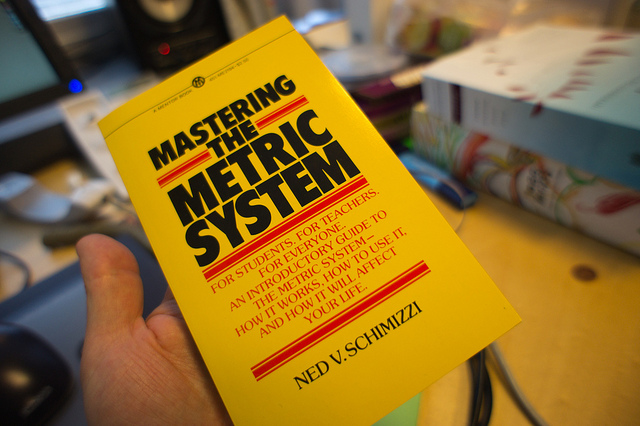Abbreviations are shortened words or phrases. These come in many forms, most with important roles in academic writing (not least ensuring brevity).
In this post, we take a look at some common types of abbreviation and how to use them.
1. Acronyms and Initialisms
Acronyms and initialisms are abbreviations made from the first letter of each word in a phrase:
BBC = British Broadcasting Corporation
UNICEF = United Nations International Children’s Emergency Fund
You can use these to prevent repetition of longer terms.

(Photo: David Benbennick/wikimedia)
Generally, you should define acronyms and initialisms on their first use by giving the abbreviation in parentheses after the full terminology:
The study was criticised for focusing on Western, educated, industrialised, rich and democratic (WEIRD) societies. But people from WEIRD societies only represent 12 percent of the global population.
And yes, WEIRD is genuinely an acronym used in the social sciences.
2. Latin Abbreviations
Many Latin abbreviations are part of everyday English, such as ‘e.g.’ and ‘i.e.’. Other examples include ‘etc.’ (short for et cetera) and ‘N.B.’ (short for nota bene).
Find this useful?
Subscribe to our newsletter and get writing tips from our editors straight to your inbox.
But academic writing uses other Latin abbreviations too. You might have seen ‘et al.’ (‘and others’), ‘ibid.’ (‘in the same place’) and ‘op cit.’ (‘in the work cited’) used for referencing sources.

The key is knowing which abbreviations are used in your subject area, especially in disciplines like law where Latin terms are very common.
3. Titles, Measurements and Dates
Other common abbreviations include titles, measurements and dates:
- Titles (e.g. Doctor) are normally abbreviated when used before a name (e.g. Dr Forde).
- Units of measurement are typically written out in full when used in formal writing, but shortened in technical or scientific work (e.g. ‘three metres’ becomes ‘3m’).
- Days and months are usually written in full in formal writing, but abbreviated otherwise (e.g. you could shorten ‘Friday, February 5th’ to ‘Fri., Feb. 5’).
4. Punctuating Abbreviations
Whether to put a full stop after an abbreviation can be confusing, as rules vary.
In the UK, we use a full stop when an abbreviation only includes the first part of a word (e.g. ‘Dec.’ as short for ‘December’). If an abbreviation uses the first and last letter of the word, no full stop is needed (e.g. ‘Mr’ as short for ‘Mister’).
In the US, full stops are added after all abbreviations except metric units of measurement.

(Photo: Aslak Raanes/flickr)
5. Contractions
A contraction omits letters to combine two words (e.g. ‘do not’ = ‘don’t’). These are common in everyday speech, but they are typically considered too informal for academic writing.
6. Listing Abbreviations
Most dissertations include a list of abbreviations. This is where you can set out frequently used abbreviations, acronyms or initialisms in your work, giving your reader a handy guide whenever an unfamiliar term is used.



